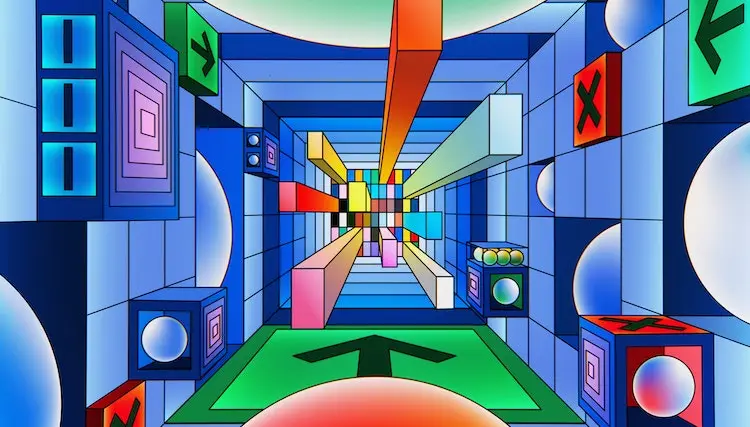The Difference Between 2D and 3D Games
Technological advancements entertain players with more pragmatic and graphically authentic video games. These 2D or 3D video games are revolutionizing the gaming world today.
Game developers play a crucial part in the gaming industry for the app’s success. But how do 2D and 3D games differ? Let’s look at how they differ.

Suppose you’re in the gaming app business and want your game app to be more conceptualized and game-integrated. In that case, you can outsource 2D game art services to developers specializing in transforming games from an idea to a playable reality.
2D Games Overview: Definition
2D games are two-dimensional images that are more simple and stylish than 3D games. Characters in these games can move right and left or up and down in two directions. The games have flat graphics, simple controls, and limited movement with other elements.
The camera in 2D games is simplified, and has no perspective view, and is typically projected straight at the game from the side. These games used parallax scrolling, which allowed the background to scroll quickly to create a depth illusion.
3D Games Overview: Definition
3D games have three dimensions and entire movement access. The player can move around in different aspects in an actual world setting.
The camera is movable in various directions, making the characters more realistic. The controls are more complex than in 2D games, but the environment is more defined and has an in-depth resolution.
2D vs. 3D: Advantages and Drawbacks
The decision to create a 2D or 3D game app relies upon your objectives, consumers, and budget. A variety of factors determines the benefits and drawbacks of 2D and 3D games:
2D Advantages
Simple to develop
When compared to 3D app development, 2D app development is more accessible than 3D game app development because 2D requires fewer skills, resources, and tools.
Compatibility with various devices
Because of its simple hardware and software requirements, 2D games are playable on various devices, including Android and iOS.
Adaptable and inventive
They are more adaptable and creative, allowing developers to combine different mechanics, genres, and styles.
2D Disadvantages
Less impressive and engaging games
Regarding visuality and realism, 2D games are less attractive and appealing.
Possibilities are limited.
The games have two movement dimensions with fewer options and variations.
More rivals and clones
The games are likely to be cloned, and the market will have more competition.
3D Games Advantages
Excellent visual quality
The games are in 3D and are of higher quality and more realistic.
Experiential learning
The game offers a more detailed perspective and a more immersive playing experience.
Innovative
The games represent more opportunities for innovation by presenting a variety of challenges.
3D Drawbacks
Complex to develop
Developing is more complex and time-consuming because it requires extensive app resources.
Less compatible
Not all devices are compatible because 3D games require higher resolution and software specifications.
Expensive development
3D game development necessitates a larger budget and higher costs than 2D game apps.
2D or 3D – Which One is the Ideal for Your Project?
Choosing which app’s development is best for you can be tricky because it relies on many factors, such as your budget, objectives, skills, and customers.
Consider your game’s primary concept to determine which idea is more appropriate. You’ll look at the gameplay and genre to see which is more profitable, fun, and engaging.
You’ll also need to decide which platforms and devices to use for your target market. Also, determining which graphics and development are accessible and realistic should be considered.
Additionally, 3D games are more challenging for developers because they require higher skills and performance. And the pipelines are more complex to develop and maintain.






